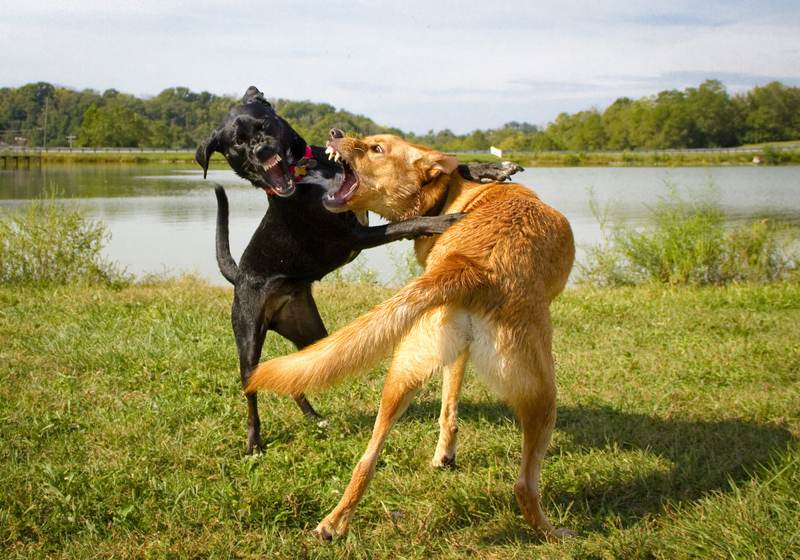Aggression is the most serious behavior problem in dogs. Fortunately, it is often preventable and can be addressed through training.
 Many factors influence aggression. Genetics play a dominant role. Protection breeds such as German Shepherds, Akitas, Rottweilers and Dobermans are more likely to show aggressive tendencies as compared to a Labrador or Golden Retriever. In addition, environment plays an important role in aggression. Lack of socialization, being frightened or even attacked by an aggressive dog, harsh punishment or just being spoiled by an uninformed owner can contribute to aggression issues. Additionally, teasing by children can create unwanted and dangerous behaviors.
Many factors influence aggression. Genetics play a dominant role. Protection breeds such as German Shepherds, Akitas, Rottweilers and Dobermans are more likely to show aggressive tendencies as compared to a Labrador or Golden Retriever. In addition, environment plays an important role in aggression. Lack of socialization, being frightened or even attacked by an aggressive dog, harsh punishment or just being spoiled by an uninformed owner can contribute to aggression issues. Additionally, teasing by children can create unwanted and dangerous behaviors.
Taking Control of Your Leadership Role
Dogs live in a world of social order. They consider their humans as members of their pack. If we do not take the leadership role, they will. Some dogs will challenge the more submissive members of their family. (Often children). If they are allowed to growl or guard their food dish and are not corrected the dog will begin to gain dominance over family members. Owners often ignore these behaviors until there is a bite. Because they misunderstood the dog’s progression to dominance they believe the bite has happened for “no reason”. Sadly, these dogs often end up destroyed at the local animal shelter.
There are many types of aggression. In training, the goal is the same. Your dog must not be allowed to be the dominant force over any human. If he understands his ranking in the family structure, he is likely to be an excellent family member.



